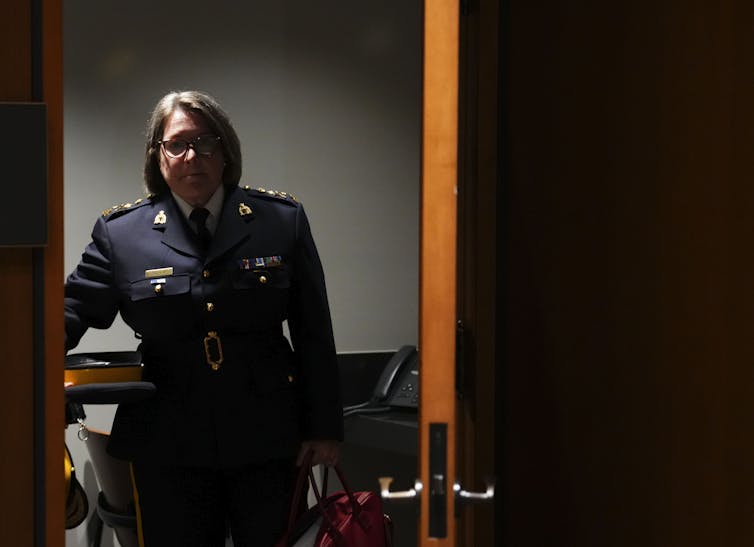
Canada’s RCMP Commissioner Brenda Lucki is currently embroiled in a political scandal and is testifying this week before the Mass Casualty Commission (MCC) in Nova Scotia.
The MCC was established as an independent public inquiry into the April 2020 mass shooting in Nova Scotia that left 22 people dead. The Commission’s mandate is to examine the circumstances that led to the mass shooting, police response, related issues like access to firearms and to provide a report of its findings and recommendations to prevent similar incidents from happening.
A series of documents released as part of the inquiry suggest that Lucki assured the prime minister’s office that the RCMP would release information related to the firearms used by the shooter to help the Liberal party’s gun-control legislation. At the time, senior RCMP officials in Nova Scotia refused to release this information to the public to avoid compromising the active police investigation.
Allegations of political interference have been made against Lucki, who has blamed the allegations on “miscommunication.” There are calls for Lucki’s resignation.
But this scandal is a red herring.
It is counterproductive because ousting Lucki from her position will do practically nothing when it comes to depoliticizing police work. In principle, the police are apolitical. In practice, however, the police are very much a political entity.
The politics of policing
The law itself is political. When a government amends the Criminal Code, enforcing the amended law immediately becomes part of the RCMP mandate. In the case of a majority government in Parliament, the administration of an amended law is at the behest of politicians. In other words, political values are inherently encoded into the law.
The police, of course, are legally prohibited from making overtly partisan statements to maintain the public illusion of an apolitical police service. Regardless, the politics of police work can be tricky.

Police organizations regularly appeal to different interest groups to influence the direction of public policies that are conducive to advancing the interests of police. “Policy is adaptable,” Lucki asserted during her testimony on Tuesday before the MCC.
Consider the ways police actively promote fear of crime and how this might influence public perceptions or voting behaviours to align with political parties that promise a tough on crime agenda.
A political party that embraces a tough on crime approach is obviously beneficial to police in the form of expanded police budgets to pay for the hiring of additional officers, equipment and even higher salaries and benefits for police personnel.
One would be hard pressed to imagine police appealing to interest groups that might support political candidates who are either sympathetic to, or in support of defunding or abolishing the police.
Advancing the interests of police
The fact that Lucki allegedly wished to support the Liberal Party’s gun-control measures is not surprising and is on par with the existing politics of police work that serve to both support and advance the interests of police; in this case the RCMP.
Consider, for example, that after the horrific mass shooting at a Texas elementary school in May, Public Safety Minister Marco Mendicino, a key political figure who is tasked by the prime minister with advancing the Liberal’s gun-control agenda, publicly affirmed “we still have a lot of work to do” in Canada, stressing the need to invest “more in law enforcement.” This would include allocating additional financial resources to the RCMP, directly benefiting the organization.

Discussions of political interference because of the MCC’s inquiry are largely misdirected because they distract from the necessary and warranted criticisms of the RCMP’s mishandling of the mass shooting.
The ineffective police response is an outrage. It is, and should, remain the real scandal.
The police will continue to engage in politics, as they always have, and attempts to depoliticize police work will invariably fail. The distraction of Commissioner Lucki’s alleged political interference will do absolutely nothing to prevent future crime in Canada. The focus must remain squarely on the police mismanagement of the Nova Scotia mass shooting to ensure there is never another mass casualty event.
The victims of the mass shooting, their families and all Canadians deserve better.
Christopher J. Schneider does not work for, consult, own shares in or receive funding from any company or organization that would benefit from this article, and has disclosed no relevant affiliations beyond their academic appointment.
This article was originally published on The Conversation. Read the original article.







